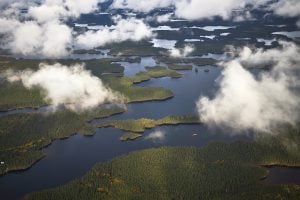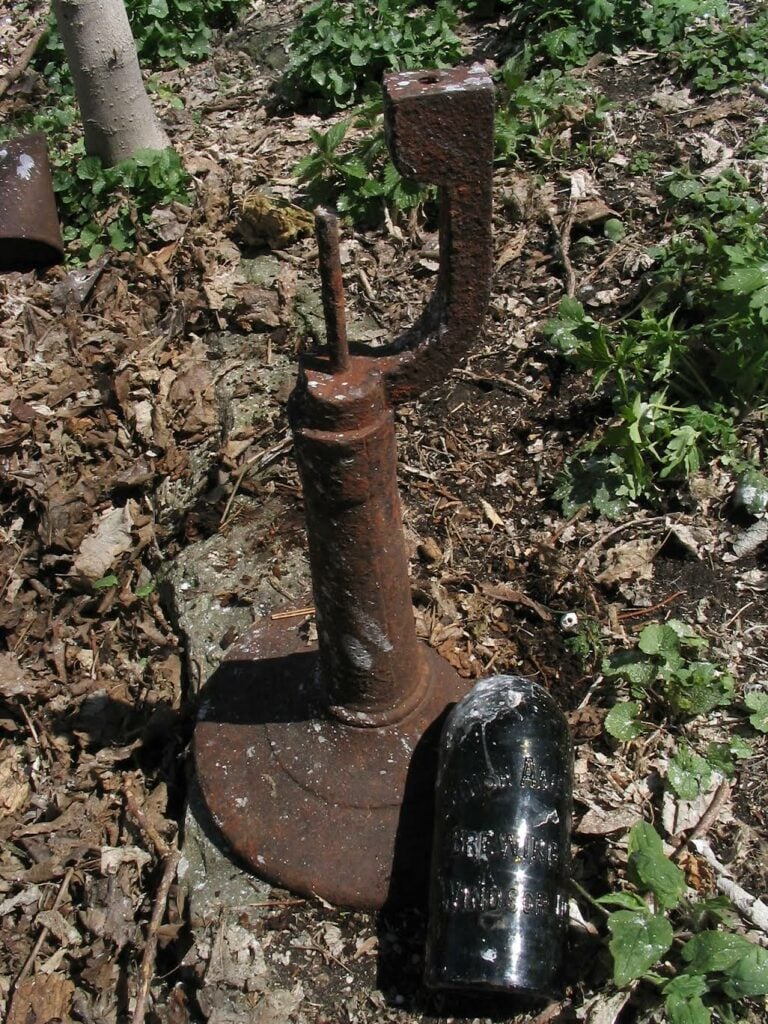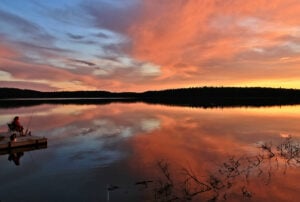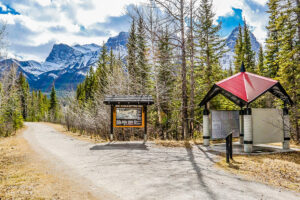
People & Culture
In search of promised lands
Uprooted repeatedly by development projects, the Oujé-Bougoumou Cree wandered boreal Quebec for 70 years before finding a permanent home. For some, the journey continues.
- 7148 words
- 29 minutes
Places
Prohibition made life in America tough, but Lake Erie's Middle Island offered respite

It was a mecca for wetting American whistles with Canadian booze during the height of Prohibition. Gangsters and tourists of summers past flocked to its limestone shores to indulge or deal in what their government had left them wanting — the slow burn of Windsor whisky. But today, Lake Erie’s Middle Island tells a different story.
The island’s heyday as a former way station for 1920s rum-runners is long past. Overgrown is the old airstrip. The once lively casino and seven-room hotel that welcomed guests 100 years ago are little more than rubble. The island that was once run by gangsters is now ruled by double-crested cormorants and gulls.


Middle Island is Canada’s southernmost land mass. Sail to its southern edge, and you’ll find yourself just 150 metres from American waters. Few, if any, have called the 18.5-hectare island a lifelong home. Instead, throughout history, Middle Island has served as a crossroads.
For at least hundreds of years, Indigenous communities around Lake Erie, including the Haudenosaunee people, ventured to Middle Island’s shores to camp and fish, leaving behind shell-tempered pottery and net sinkers in the island’s bedrock. Later, it was a rumoured way point for Civil War deserters and escaped slaves seeking asylum in Canada.


When the clubhouse, a hotel run by the Middle Island Yachting and Sports Club, opened in the 1920s, Middle Island became an island of indulgence. A retreat for the wealthy folk of cities like Detroit, Toledo and Cleveland, it was also a hideaway for American public enemies, such as infamous gangster Al Karpis, and a place to stash the modern-day equivalent of tens of thousands of dollars in banned liquor during Prohibition.
Though the owners of the clubhouse were American, the keys dangled from the belt loop of a Canadian. Pelee Islander Harold “Buster” Williams won the job of caretaker for the club in the 1920s.
“He showed me where they hid the liquor,” recalls his daughter, Karen Williams-Foster, of a trip they took to Middle Island together more than 60 years ago. “It was underneath the steps in the kitchen when they knew there was going to be a raid.”


Raids by American officials were expected. So were fines, some steeper than US$1,700 — in today’s dollars — for possessing a single bottle of beer. At night, the clubhouse promised free-flowing alcohol and a chance of meeting lady luck at the craps table or, rumour has it, the notorious Al Capone. On occasion, however, boaters would rock up to find Middle Island dry, its intoxicating goods seized by police. Getting there, and getting home, was often a race against the U.S. Coast Guard or, worse, the FBI.
Middle Island hosted thousands of people over the more than 10 years in which the clubhouse was operational. But not everyone who visited Middle Island made it home, the old stories of Pelee Islanders and long-yellowed clippings of the Port Clinton News Herald say — those who got on the wrong side of a visiting gang ended up sleeping with the fishes on Lake Erie’s shallow bottom.


When U.S. Prohibition was axed in 1933, rum-running died with it. For a while, the clubhouse continued to be popular with local fishermen and vacationers, hosting up to 200 people per day. But it eventually fell silent, save for the howls of Lake Erie’s wild storms. Buster stayed faithful to Middle Island for a while after, raising Labrador retrievers there and fishing its fertile waters, says Williams-Foster. But eventually, like the others, he left. Many of his stories are now lost, known only to the island’s limestone bedrock.
Today, the island has been reborn as a conservation area owned by Parks Canada as part of Point Pelee National Park. The lake-locked patch of Carolinian forest is a corridor for migrating birds and home to rare plants, some of which aren’t found anywhere else in Canada. Come October, when the birds fly south, visitors can make landfall on the island and take a look around. Perhaps, if they’re lucky, they’ll stumble on a forgotten bottle of Windsor whisky.
Are you passionate about Canadian geography?
You can support Canadian Geographic in 3 ways:

This story is from the May/June 2023 Issue

People & Culture
Uprooted repeatedly by development projects, the Oujé-Bougoumou Cree wandered boreal Quebec for 70 years before finding a permanent home. For some, the journey continues.

Travel
When your heart needs to roam, these 10 iconic Manitoba experiences will be waiting

Travel
The trail started with a vision to link Canada coast to coast to coast. Now fully connected, it’s charting an ambitious course for the future.

Science & Tech
Celebrating Canadian Innovation Week 2023 by spotlighting the people and organizations designing a better future